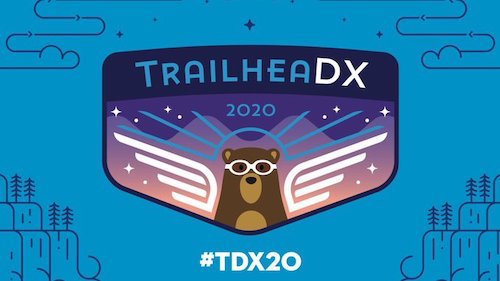
Get your FREE 30-day trial.
Please complete all fields.
This is a sponsored article from Bluewolf, an official sponsor of Dreamforce ‘18.
Imagine you’re about to embark on a substantial mobile app development project to engage your customers with a new customer loyalty program. Whom do you invite to the kick-off meeting: your top three development engineers, or a support agent, marketer, and designer?
Bit of a trick question, actually.
Today, seven of the top 10 most valuable companies in the world — by market cap — are technology firms. This creates an assumption that the most valuable educational background is in STEM (science, technology, engineering, and mathematics). But for what it's worth — if it were my kick-off — I would start with the second group, who don’t spend their days coding. This group collectively listens every day to customers’ challenges (service agent), works to understand their behavior and motivations (marketer), and understands that simplicity drives human understanding (designer).
For years, STEM education has been on the rise and with good reason. But, it is also my belief that technology companies do not appropriately value and prioritize the recruitment of employees with backgrounds in human psychology, culture, and quality design. This is a missing component in far too many technology development discussions.
I have built a global business over the past 17 years and hired literally thousands of employees. Surprisingly, some of the most successful problem solvers I have ever witnessed started in technology with what many would consider questionable pedigrees — a bartender we hired as a Technical Architect, a Solution Architect who was once a chocolatier, and even a CTO with a philosophy degree.
What common trait did these individuals have? Powerful listening skills, a genuine curiosity, ability to ask unexpected questions that cut to the very heart of a problem, and an entrepreneurial drive to learn, self-start, and grow.
We all owe technology companies like Salesforce and their group of crack engineers a huge debt of gratitude. They’ve built sophisticated and increasingly mature technology platforms that ultimately don’t require heavy coding. Programs like Trailhead teach us that anyone can learn to build on Salesforce’s platform and APIs. But technology development skills, without an appreciation and understanding of who they are meant to serve, create an often misguided and over-complicated solution.
Let me stop you before you say that I’m against programs like Girls Who Code, or that STEM is a bad thing. That is definitely not the case! Pathways in Technology Early College High Schools (P-TECH) and other innovative educational initiatives are critical to our society’s future and how we collectively build the workforce of the future. But I do contend that business leaders should value the sciences and humanities equally when it comes to technology recruitment. Specifically, there are three reasons why:
Today’s technologies are vastly more intuitive than they were even a decade ago — no code-writing required. We can recruit from all disciplines and “swivel” into more specialized skills. The hard work is envisioning how a system will work for a person.
It’s easier to learn a modern programming language, such as Python or an AI service, because information and so many learning techniques are readily available. Our workforce needs specialized skills, but these skills require far less rigorous and formalized education than they did in the past.
In a world where technology is becoming easier to use and learn, the skills that are imperative and differentiated are the skills that help us understand how to work together as humans.
In my view, ultimately, what every team needs is balance and diversity — in experience, gender, culture, and skills. You can experience what I mean for yourself by joining me at Dreamforce ‘18 for a session titled, “Why Tech Needs the Humanities to Innovate” taking place on Wednesday, September 26 at 1:30 p.m. PST at the Yerba Buena Forum in San Francisco.
Eric Berridge is the Co-Founder of Bluewolf, the longest-standing professional services agency solely focused on the Salesforce platform.